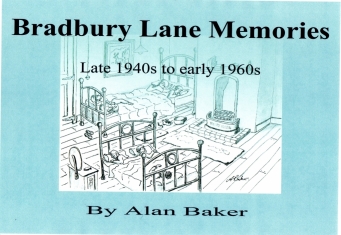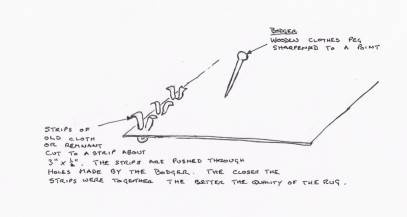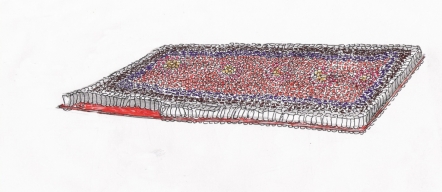My book about Bradbury Lane and Hednesford
This book has now sold out and is out of print. I hope to do a similare book with new drawings that have not been seen before however all the old drawings will still be there.
Hednesford Man as recorded by the Staffordshire Men folk group
Hednesford Man
I was born in Hednesford town. I’m A Hednesford man. Bradbury lane and Takeroo. Is where I played and ran. Walked the length of Cannock Chase The fields and meadows too Caught King Geordie sticklebacks While above me skylarks flew
Pye Green and Brindley Heath And the village in the wood Bilberries and blackberries Picked them when we could Station Road and West hill Littleworth were the Schools Hednesford Park to play in Built on filled in Pools
Walked to Hazel Slade And Wimbleberry too Rawnsley, on to Heath Hayes Worn out many a shoe My family worked beneath the ground At fives and Cannock wood On the bonk and in the Dark Did the work they could
In world war one and two The family did their bit Some were lost some returned Again went down the pit My history it is lost now My house has long since gone Bradbury Lane and Takeroo Where the bright light shone
Come sing with me this song of joy Sing out loud and clear To Hegeford of the past and present And then give a rousing cheer I was born in Hednesford town. I’m A Hednesford man. Bradbury lane and Takeroo. Is where I played and ran.
By Alan Baker
Owd Hedgefud words
As a "Hednesford Lad" born and bred I remember the way we spoke in the 40s and 50s with the accent going back even further into the mists of History. With TV and people's broader horizons the accent has mellowed a little and some of the older words are fading from use.
I live in London now but my accent comes back as soon as I speak to any one from Hednesford and I have never really tried to change it.
I did have to modify the accent sometimes. People from other parts of the world could really struggle to understand me.
Enjoy the trip back to the past if your accent is a bit posher but for the rest of us just remember.
Ost cha – not strictly a word but it was something all the old miners seemed to say as they swung a pick, sledge Hammer or an Axe. Sometimes used to accentuate a slap to an older child. I have even heard this when some one got into a fight. I suppose it was on the Bruce Lee principle of noise to concentrate the force of a blow. Kay-lie -- This seems to be perculiar to just to the West Midlands because all the people I met in the army it was only those from our area that knew that Kay-lie was sherbet. Some other areas did use the word to mean drunk as in “He was Kaylied”Blartin -- CryingMoggie -- What we called a mouse. In other areas A moggie was a cat.Our Wench – Your Sister or a man might call his wife our wench. We always called girls wenches but in the sixties it died off as the girls thought it was common and demeaning.Mardy – Miserable or crying. (Not restricted to the midlands)
Bostin - Great
Bostid – Broken
Bost – Broke
Yohw or Yo= You
Dohw = Dont
Wohw = wont
Kor = Can’t
War = wasn’t
Day or Daint = did’nt
Kotch = catch
Ahr = I
Goo = Go
Hazel Slade would be referred to as “the Slaird”
A peggy rug. This was made with an old Hessian sack and small bits of cloth poked through to form a snug rug or mat (see Fig 1 and 2)
Fig1
A common joke was
I ad er on the rug in frunt uv the fiya last night for fowa Ow- waz.
Un we nearly finished mekin it n-air-w
Loff = Laugh
Allies or glarnies = marbles
Pon cairk = pan cake
Bonk = Bank as in sitting on the bonk
"Working on the bonk "was working at the pit above ground
Pulling Meagrams = Something my Gran said if you were pulling a face.
Gongusala = This word is actually in the large version of the Oxford dictionary but It was something my Gran said if you were being idle and I rarely heard it any where else. It came from Narrow boat and canal culture late 1800 early 1900.
Snap = food usually sandwiches
Snap tin = what you took your sandwiches to work in
Snappin = time at work when you ate your sandwiches
Chaze = Cheese
Mate = Meat
Fair = Far as in “It ay fair yoh con worck its just up the row-ed ( its not far you can walk its just up the road)
Yoh am ahy yah = you are aren’t you
Yoh cor con yah = you can’t can you
Yoh wull whoa yah = you will wont you
Doh give er that er cor ave it = don’t give her that she can’t have it
Its ern = Its hers
Its is-en = Its his
We-ah yoh gooin = where are you going
Suck = Sweets
Mekin a cup of tay = making a cup of tea
There are lots more and some time soon I plan to compile a few more lists
|





 fig 2
fig 2


